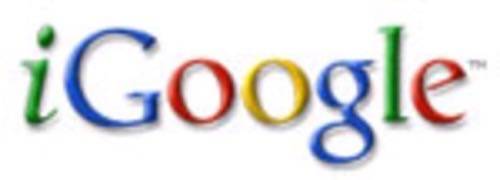Google today made an announcement that could prove to be not only important to the evolution of OpenSocial and iGoogle, but also to the social networking sector itself. Google announced a new developer sandbox for iGoogle that includes support for their OpenSocial APIs. Essentially, Google is working toward turning their start page property into a social network, though they haven’t overtly said so. Google’s move makes this officially the start of a trend we’re seeing in start pages to get more social, and an idea we’ve been pushing at RWW for the past year.

As our own Sarah Perez notes on her personal blog, in the Google FAQ about the new iGoogle sandbox, in a section about friends the company writes, “This is not the final network that will be used in iGoogle. Users will have full control over who their friends are and will be able to easily modify their list of friends. Stay tuned for details.“
We have no idea what the “final network” will be, but it certainly seems to hint at the further social networkification of iGoogle. We think that’s smart. In May of last year we theorized that start pages were very well suited to take on social networks like Facebook and MySpace. “Whereas Facebook is just launching their platform,” we wrote at the time, “Netvibes and Pageflakes each already have an evolved and popular platform ecosystem in place. What they lack is the social scene.” We called adding social interactivity features to start pages the “next logical step” for those companies.
A couple of months later, it appeared that taking on social networks was exactly what Pageflakes and Netvibes were planning to do. “Start pages will challenge the existing social networks – it’s almost evolutionary for them to become social networks,” wrote Richard MacManus.
In July, we laid out a plan to fix Yahoo! that revolved around building out a developer platform for their web-leading start page, MyYahoo! The final step of our plan was to make the platform social.
And just last week, Pageflakes was acquired by LiveUniverse, a move that we saw as a step toward the further socialization of Pageflakes. “Along with [MySpace founder Brad] Greenspan, LiveUniverse has original MySpace engineer Toan Nguyen on its management team. That’s some serious chops in the area of social networking, which is where Pageflakes has been heading since … last July,” we wrote.
Google’s announcement today may just kick off an industry wide trend toward turning start page properties into social networks — often, as Google goes, so goes the web. That makes a lot of sense. Start pages generally already have rich developer ecosystems with many useful apps, and because they act as “first stops” for many users, they’re already sticky. Adding in social networking functions just increases utility for users.

















